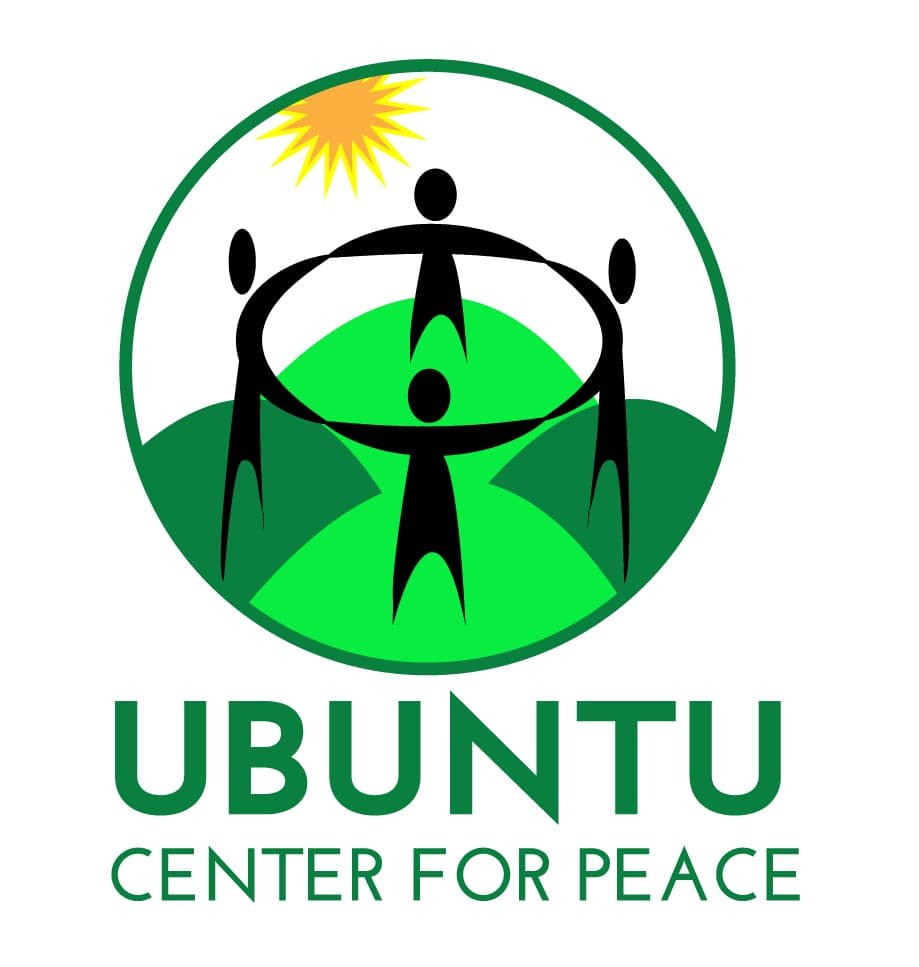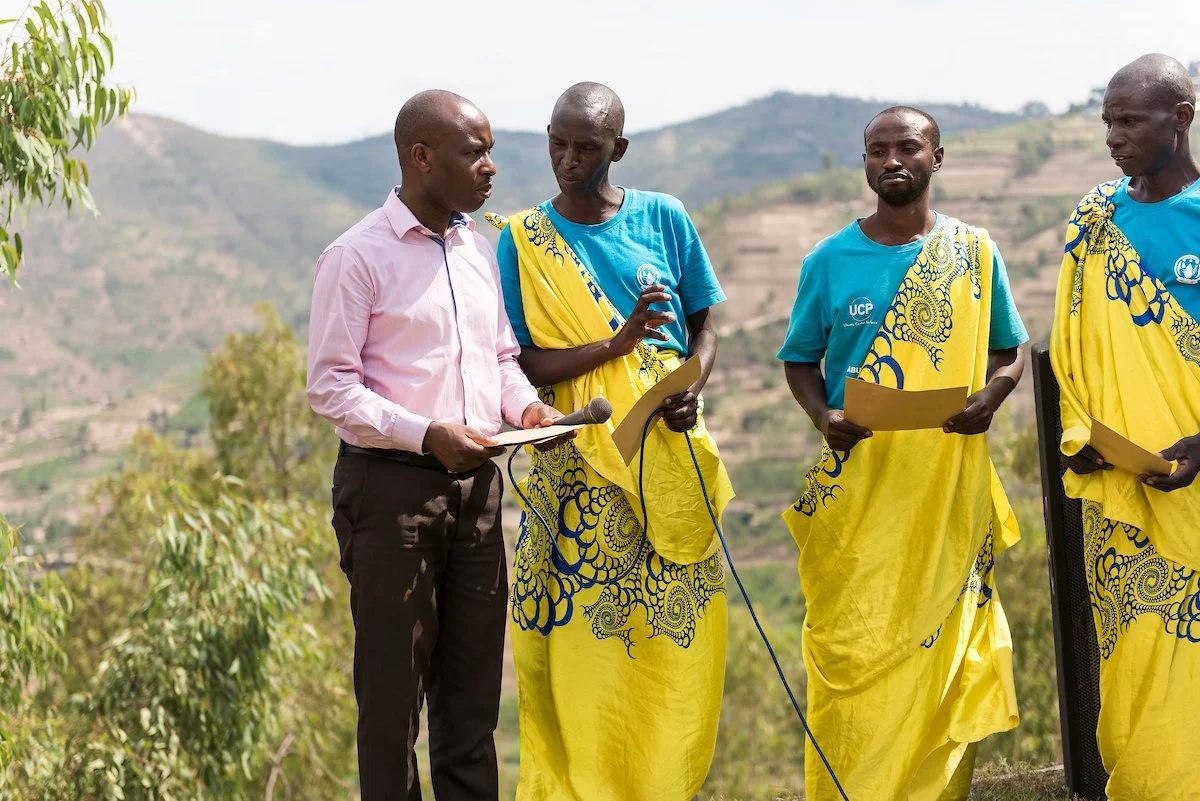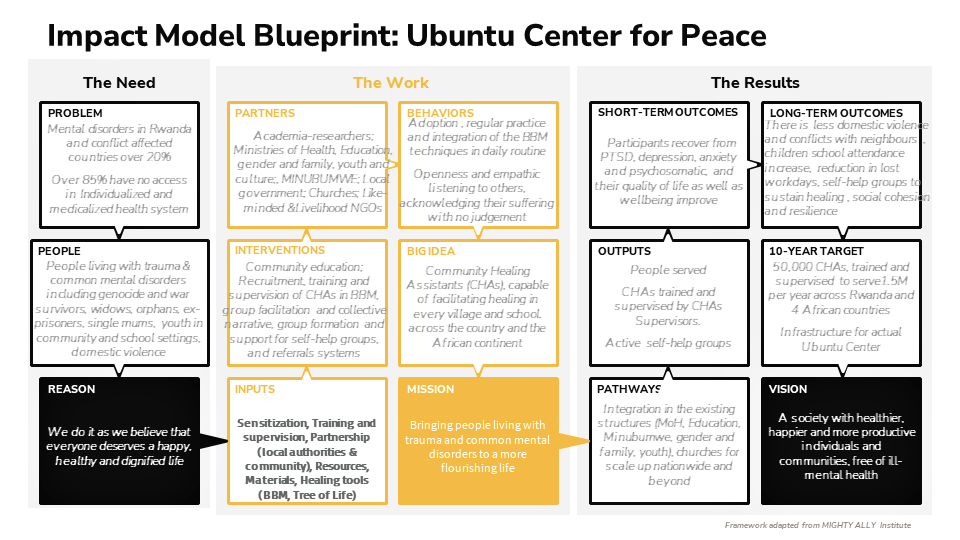Our Theory of Change
Innovation
Design and test a scalable solution to address individual and collective trauma as well as common mental disorders in communities affected by large-scale traumatic events including genocide, mass killings, terrorism, and natural disasters. Our “community-based social healing” innovation is proven effective in the context of post-genocide Rwanda. We have been iterating on it, refining it as we expand it to more communities.
Partnerships Building
We collaborate with the community we serve, Non-Government Organizations, the government institutions, the private sector and the academia to share knowledge and to build capacity to bring about positive social change for societal healing and sustainable development.
Scale Up
Based on evidence and lessons learned from our social innovation, we bring to scale the interventions by leveraging strategic partnerships including with the government and the churches for a ‘writ large’ impact.
Evidence-Based Advocacy
Through research, we get sense of what works and what does not. We then use evidence to advocate and campaign for alternative policies and practices that enhance lasting social change.
Here is our theory of change or impact model summarized in a figure:


